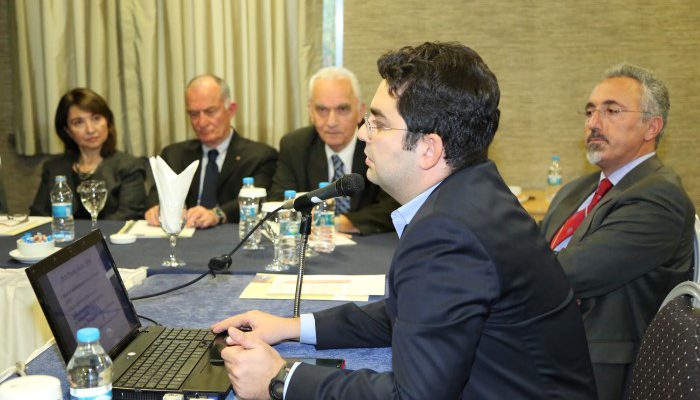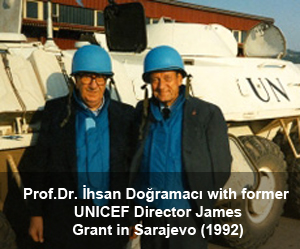TURKEY’S FOREIGN POLICY: A MIDDLE POWER’S QUEST FOR STATUS
On October 21, 2014, Dr. Özgür Özdamar, of the department of International Relations at İhsan Doğramacı Bilkent University, addressed a Bilkent International Security and Strategy Seminar (BISSS) at the Bilkent Hotel. Dr. Özdamar presented findings from a 1001 TUBITAK Project titled “Turkey’s Foreign Policy Roles: An Empirical Approach,” which draws on role theory literature. The aim of the project is to analyze the roles assigned to Turkish foreign policy over the years, and to explore the attitudes of government leaders and officials, societal elites, as well as public opinion about these roles.
The first part of the project has been conducted on two levels. For the first level of analysis, Dr. Özdamar collected data using content analysis of top decision makers’ speeches, in order to reveal leaders’ attitudes towards different foreign policy roles. In this leaders-based approach, the results suggest that between 1997 and 2009, five leaders, despite coming from two ideologically different parties, envisioned similar roles for Turkish foreign policy, i.e. ‘defender of peace and stability’, ‘global system collaborator’, and ‘regional system collaborator’, all of which are typical middle power roles. In the post-2009 era, however, we see evidence of new role conceptions emerging, such as those of ‘protector of the oppressed’ and ‘regional leader’.
The second level of analysis is based on elite interviews with 50 respondents from İstanbul, Ankara, İzmir, Trabzon, Antalya, Erzurum, and Diyarbakır. Foreign policy elite interviews were conducted with members of the bureaucracy, media, civil society, academia, business world, and so on. According to the findings, there are three roles with which Turkish foreign policy is most commonly associated. These roles, ranging from most to least often used are: ‘regional power’, ‘bridge country’, and ‘model country’. The research also reveals that the least mentioned roles are ‘isolated’, ‘Eastern country’, ‘regional protector’, ‘Eurasian country’, and ‘World state’. Dr. Özdamar has also looked for answers to questions about any role contestation among elites, role altercasting from external actors, and differences between elite and public opinions on foreign policy. His findings suggest, for example, that elites are more likely to prescribe regional and local roles rather than global ones for Turkey.
With the help of data collected by a professional survey firm, the last part of the project measures the attitudes of Turkish public opinion on Turkey’s different foreign policy roles and whether they are also changing according to ideology, party, identity, and time. The survey includes questions aimed at revealing public opinion about the success of Turkish foreign policy, international organizations, and public attitudes towards other countries. Questions also seek for a better understanding of the public’s general foreign policy attitudes towards issues such as military intervention, East-West preferences, EU membership, isolation, decisions regarding war, etc. In conclusion, Dr. Özdamar compared the differences and similarities in opinions on foreign policy roles within and between leaders, elites and the public, before responding to participants’ questions.




